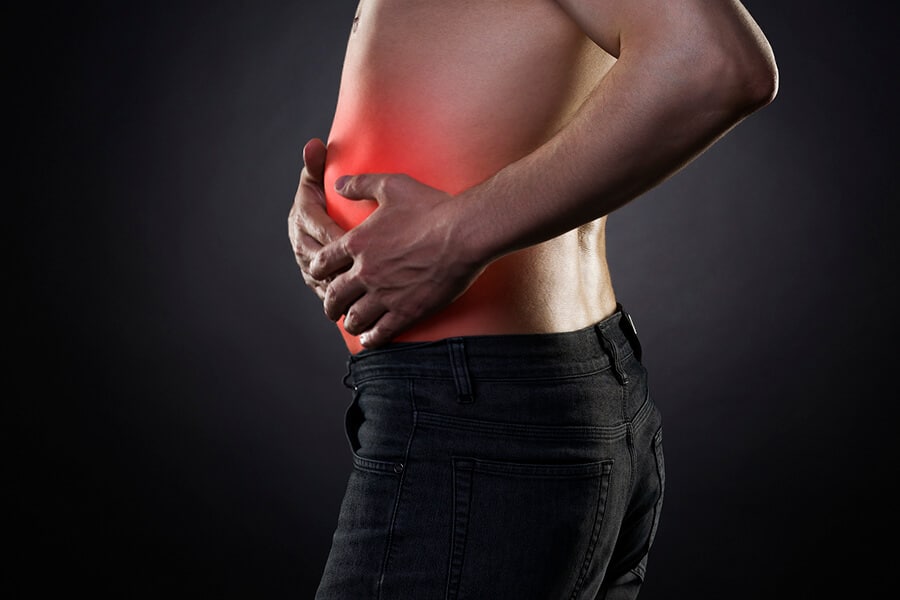Short-lived stomach pain are often not a serious health concern. But chronic pain paired with bloating can sometimes be a sign of a life-threatening disease.
Constant stomach pain and bloating can also be caused by things such a new diet, urinary infections, the development of a food allergy, and fatty liver disease.
If you haven’t made any lifestyle changes, you may want to read our list of 5 serious pain and bloating causes and find out what you can do about them.
1. Ovarian Cancer
Even though it’s relatively rare, ovarian cancer is one of the most deadly types of cancer in women over 50.
Risk factors you should look for are a family history of cancer, being childness, having children over the age of 35, obesity, and long-term usage of hormonal replacement therapy (birth control pills without progesterone).
Get Back Your Normal Life Again
As pain specialists, we can guarantee that we are more than qualified in alleviating your pain and treating your condition.
If you’re concerned about ovarian cancer, you should speak with a gynecologist. They will perform a physical exam to check if there are any signs of fluid retention. Imaging tests can also show if a tumor is present near your ovaries.
2.Colon Cancer
A healthy diet rich in nutrients can cut your risk of developing colon cancer in half. But if you’re experiencing constant pain and bloating, you should ask your doctor about getting a colonoscopy.
Colon cancer is also influenced by factors such as age and genetics. If you’re over 50, a regular colonoscopy might be a good idea, as it can help you detect it early.
Men over 50 are at a higher risk to develop colon cancer, and regular checkups should be made no matter if symptoms are present or not.
3. Liver Disease
Constant pain and bloating can also be a sign of liver disease caused either by heavy alcohol use, genetics, or toxins accumulated in the liver over the years.
If you’ve suffered from hepatitis in the past, chances are that your constant pain may be caused by your liver.
If you’re concerned, speak with your doctor about your symptoms.You’ll be diagnosed either through a physical exam or ultrasound.
A diet high in both saturated fats and sugars along with alcohol can take a toll on your liver. So if you’re concerned about liver disease, dropping alcohol and changing your diet may help relieve your pain.
4. Diverticulitis
Often caused by an unfortunate combination between genetics and a diet poor in protein, diverticulitis is a infection of the colon that can cause tremendous pain and bloating.
This condition is often found in athletes and bodybuilders who follow diets high in protein and poor in fiber in order to encourage muscle mass growth.
If you’re concerned about diverticulitis, seek medical help, especially if your constant pain and bloating is followed by loss of appetite and fever.
Fortunately, diverticulitis can be treated in a number of ways, from fasting to a diet consisting of juices only. Antibiotics are also useful if the infection begins to spread.
Worse case scenario when it comes to diverticulitis is the risk of developing abscesses that can be removed via surgery.
After you’re finished with the treatment, the doctor may recommend you a diet high in fiber. This will help you avoid constipation and future infections of the colon.
5. Crohn’s Disease
Crohn’s disease is caused by an autoimmune response that affects the small intestine and colon.
Often times, this condition is left undiagnosed because the symptoms are often misinterpreted.
In the early phases, bloating is one of the main symptoms. As the disease progresses, the intestines get narrowed, leading to vomiting after meals since there’s not enough room for food to get through. Weight loss is another symptom, especially when associated with blood in the stools.
Unfortunately, the list of symptoms doesn’t end here. You may notice joint pain, ulcers, and inflammation in the eye area.
What makes this condition so difficult to diagnose is the fact that inflammation in the intestines is not easy to spot.
A regular colonoscopy will not reveal the devastating effects of Crohn’s disease on your intestines. Instead, speak to your doctor about the possibility of having a MRI or CAT scan.
When Constant Pain and Bloating Is Considered an Emergency
If you’re experiencing chronic pain and bloating paired with uncontrolled vomiting, loss of fluids due to diarrhea, or blood in vomit or stools, you should seek medical help right away.
Also, look for triggers. Some experience these symptoms after meals or after having bowel movements. This kind of information will help your doctor find out what could be the cause of your acute pain.
Final Thoughts
Bloating and constant stomach pain is rarely caused by serious conditions. Most patients suffer from food allergies, liver issues, and severe constipation.
But it’s always better to seek medical attention right away than to hope it’s not serious. Even cancer can be treated successfully when found early.
Lifestyle and genetics also play an important part. So when you describe the symptoms to your doctor, make sure you mention your family history and your current diet. Many conditions are caused by lack of nutrients or too much pressure on the liver, and these can be easily fixed with minor dietary changes.
Work with a skilled pain management doctors to create a customized treatment plan to address and correct your stomach pain symptoms.

